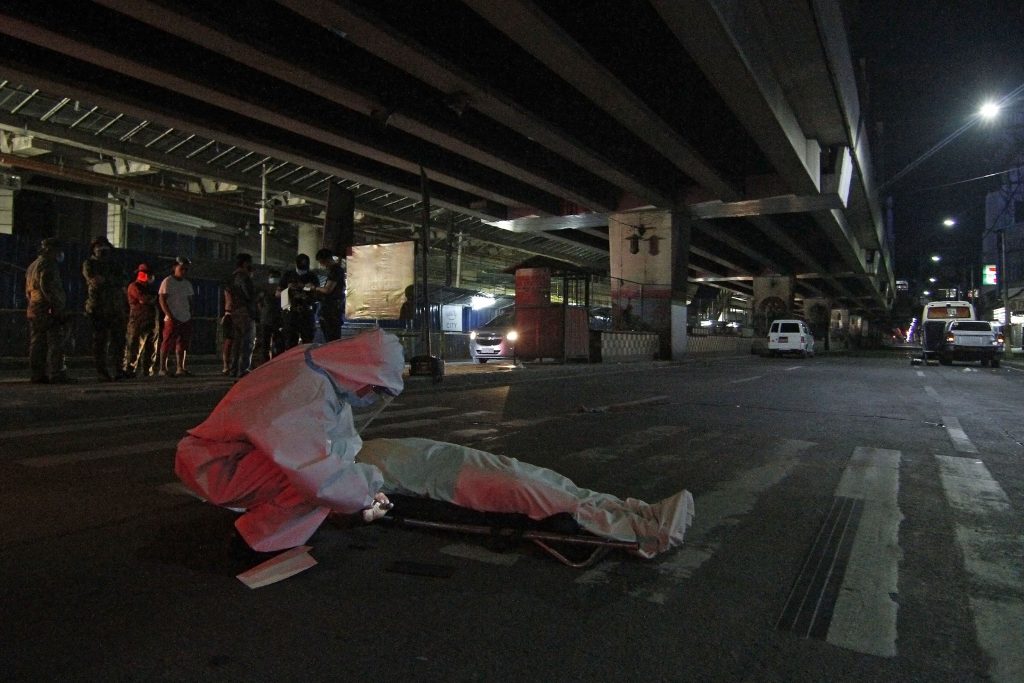
Killings linked to the Philippine government’s “drug war” intensified during the coronavirus pandemic in 2020, said Human Rights Watch in its World Report 2021 released this week.
The human rights group noted that attacks by the police, military, and unidentified gunmen on leftist activists, community and indigenous leaders, human rights defenders, and journalists also increased during the past year.
“The administration (of President Rodrigo Duterte) appeared to take advantage of COVID-19 curfews in 2020 to expand its gruesome and bloody ‘war on drugs,’” said Phil Robertson, deputy Asia director at Human Rights Watch.
“At the same time, government ‘red-baiting’ of leftist activists, rights defenders, and others have put them at greater risk of deadly attack,” he added.
In the 761-page World Report 2021, its 31st edition, Human Rights Watch reviews human rights practices in more than 100 countries.
The report noted that the human rights situation in the Philippines worsened during the pandemic, as the government imposed strict lockdown measures that resulted in the arrest and incarceration of people, “in conditions that greatly increased their health risk.”
In the early days of the lockdown, police subjected curfew violators – including children – to abusive treatment, said the human rights organization.
“Drug war” killings in the Philippines in 2020 increased by more than 50 percent during the early months of the pandemic, it added.
The Philippine National Police, however, maintained that since 2016, only 8,000 alleged drug suspects had been killed during police operations contrary to claims of human rights groups.
In June last year, the United Nations Office of the High Commissioner for Human Rights validated many of these killings.
Domestic human rights groups and the government’s Commission on Human Rights believe the actual toll is triple that figure.
Philippine rights monitors reported in 2020 that more than 160 political activists had been killed since Duterte became president in 2016.
Human Rights Watch noted that a number of the victims had earlier been “red-tagged” or red-baited by the Philippine military, the police, and local anti-communist groups.
Among those targeted for “red-tagging” were celebrities who expressed support for groups that the government accused of having communist links.
The media also came under attack.
In June, a court convicted Maria Ressa, head of the news website Rappler, on charges of cyber libel. In July, the Philippine Congress voted not to extend the franchise of ABS-CBN, the country’s largest television network.
“As respect for human rights in the Philippines spirals downwards, concerned governments, and UN agencies will need to press the Duterte government harder to halt its atrocities and hold those responsible to account,” said Robertson.
Source: Licas Philippines
0 Comments